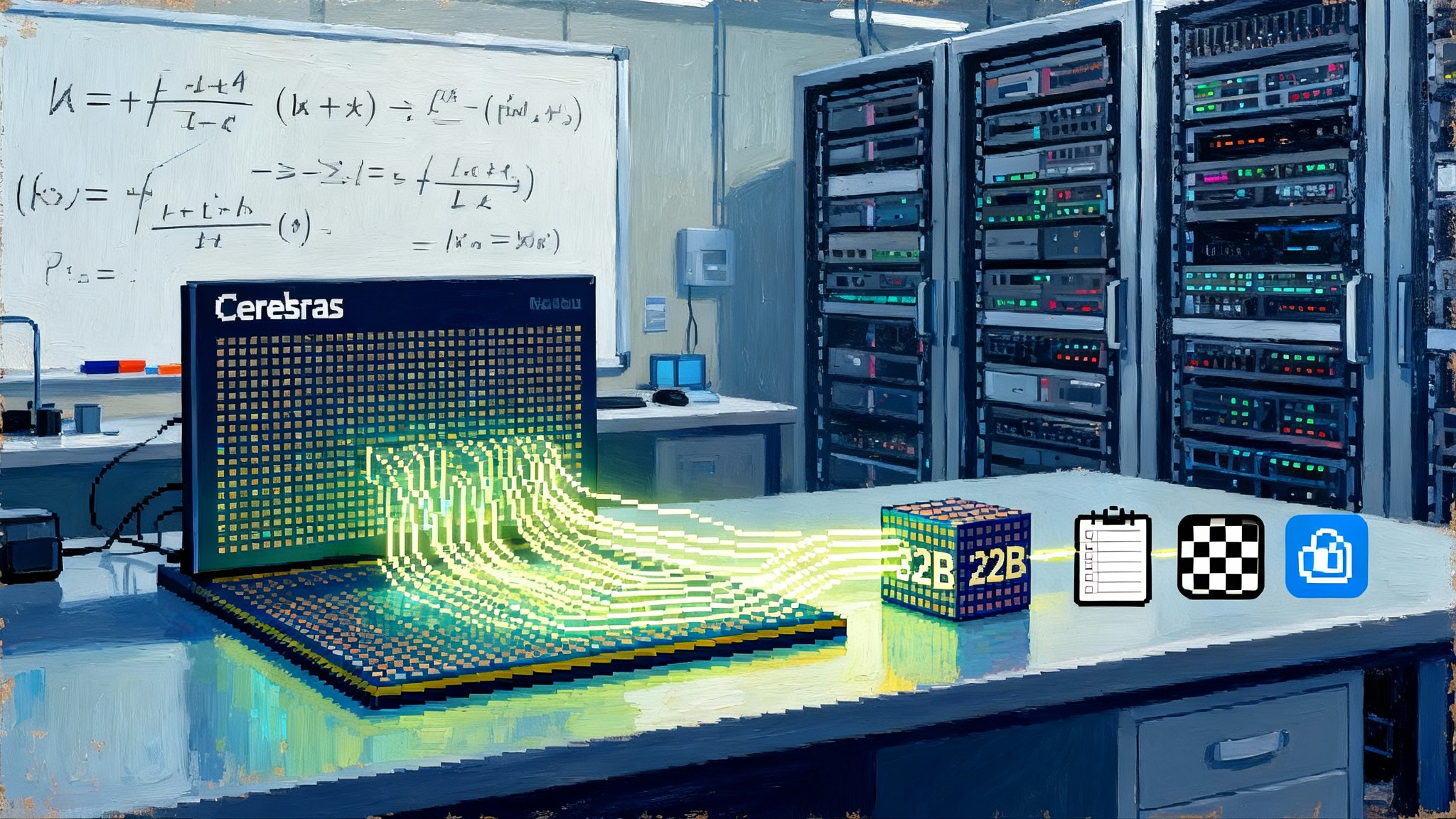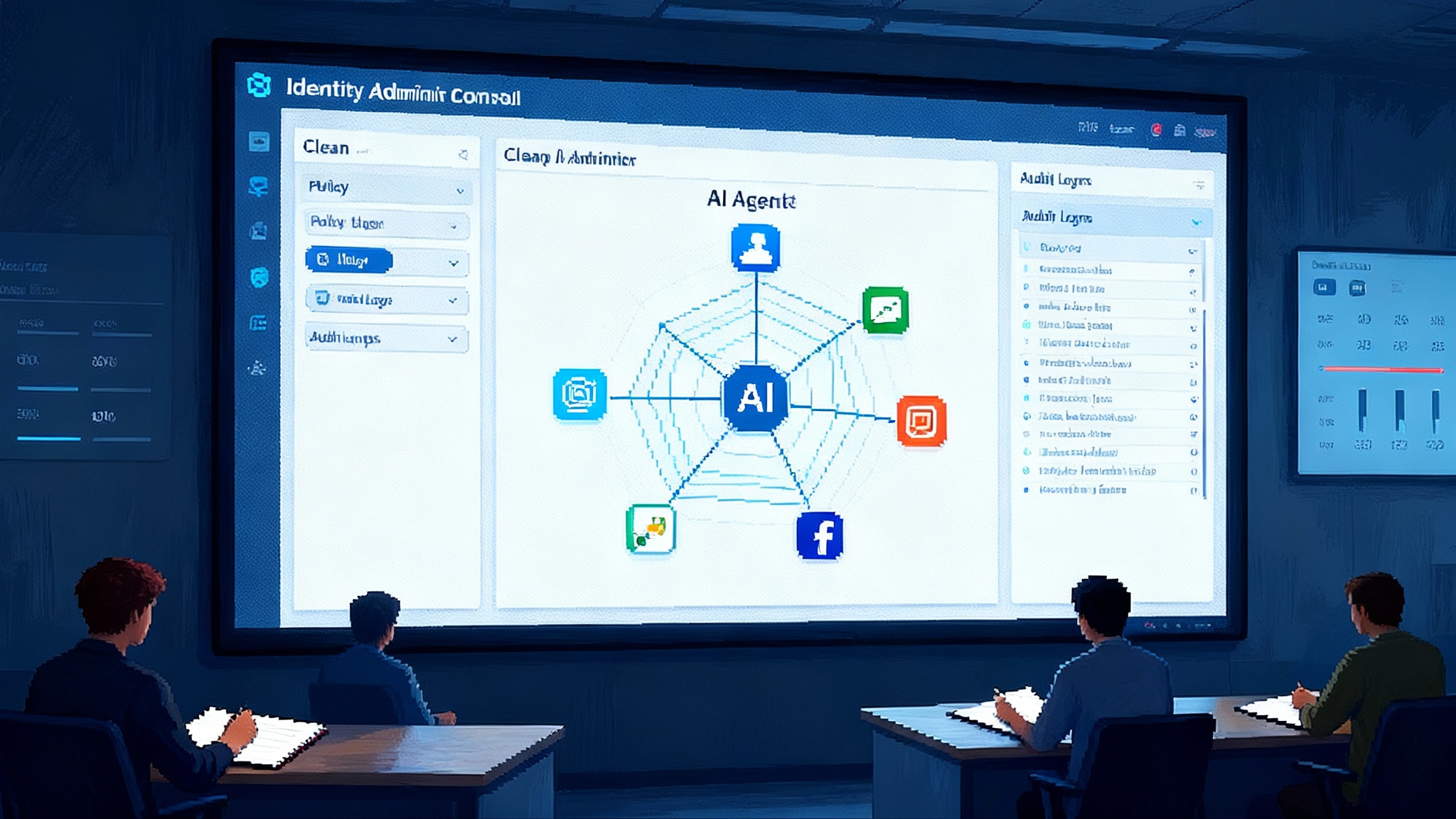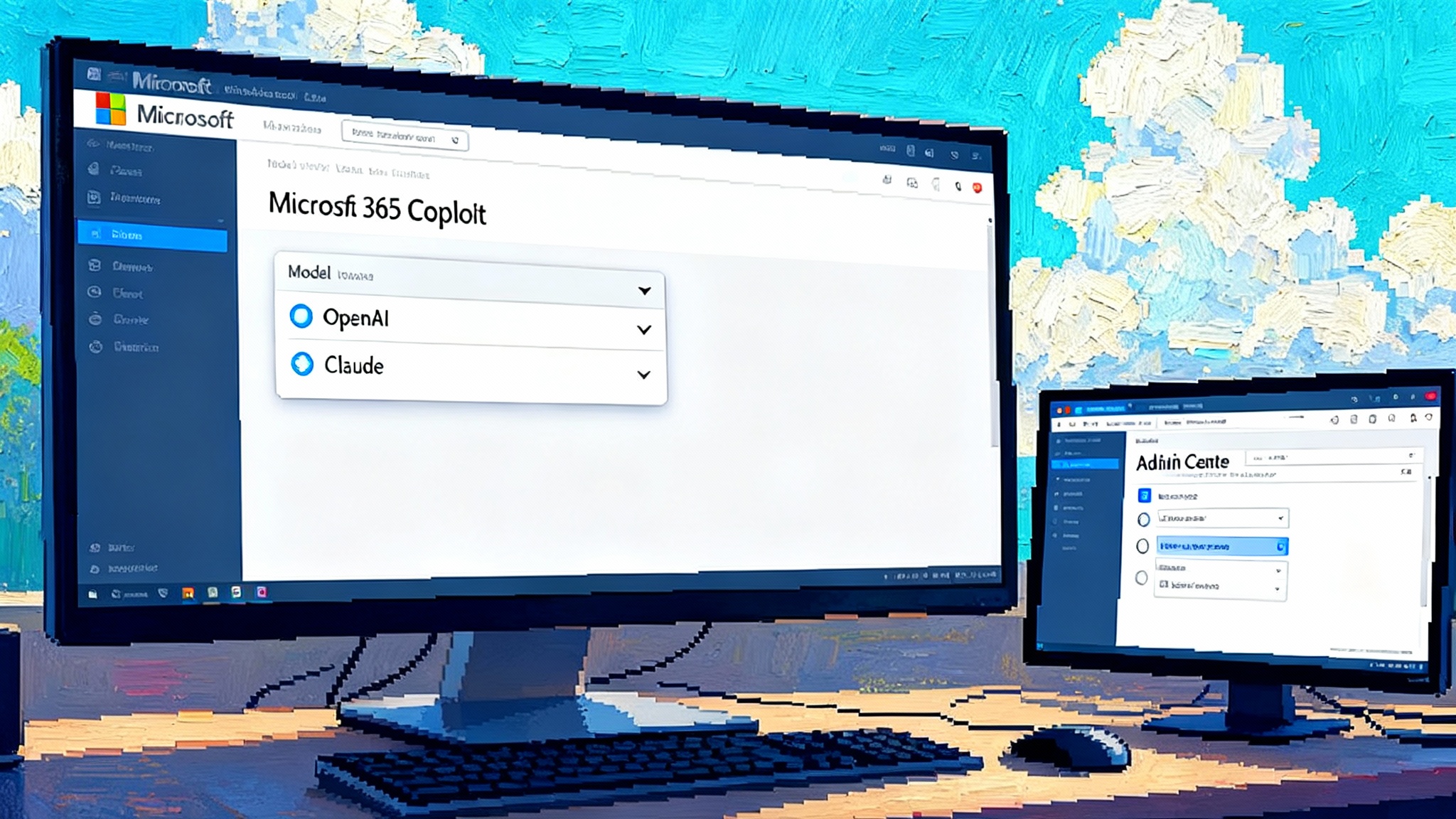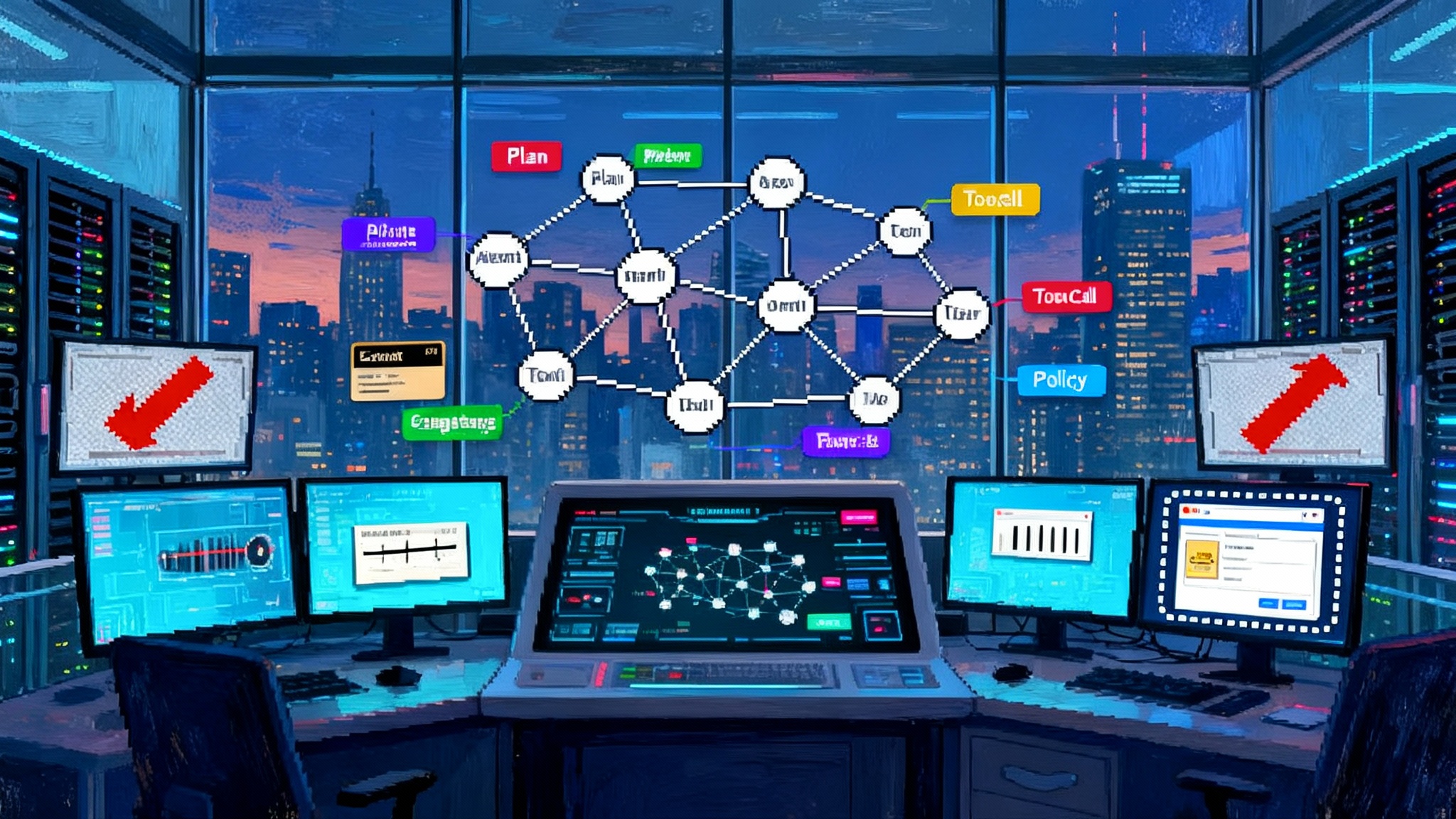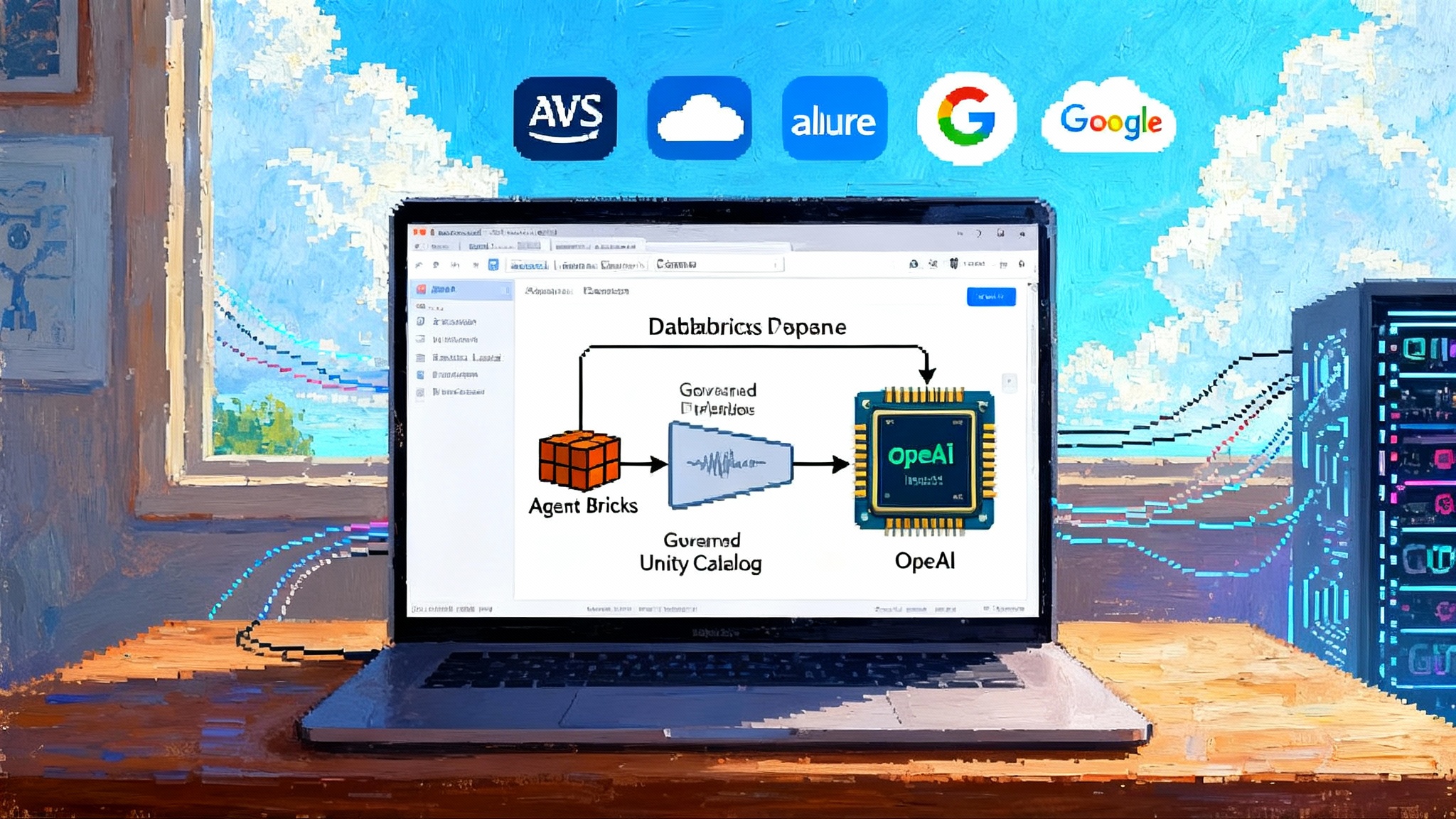 Artificial Intelligence
Artificial Intelligence
Articles under the Artificial Intelligence category.
K2 Think and the small but mighty turn in reasoning AI
MBZUAI’s K2 Think signals a shift to smaller, faster reasoning systems. With long chain-of-thought, verifiable RL, and plan-first prompting, a 32B model can rival giants while staying deployable.
OpenAI × Databricks: The Enterprise Agent Stack Goes Mainstream
OpenAI’s frontier models now meet Databricks’ lakehouse controls, turning agent pilots into production programs. See how identity, retrieval-to-action, observability, and cost governance align on the data plane, plus build patterns, risk tactics, and a practical 30-60-90 rollout.
Anthropic’s opt-in shift: five-year retention and your plan
Anthropic now lets consumer users opt in to training Claude on their chats, with data kept for up to five years. See what changed, how it compares to OpenAI and Google, and a practical plan for builders.
AP2 becomes the trust layer for AI agent commerce
AI agents can now place real orders, which breaks long-held assumptions in online payments. AP2 turns fuzzy intent into signed, verifiable mandates that merchants, PSPs, and issuers can trust across cards, bank transfers, and stablecoins.
Identity Is the Control Plane: Okta’s XAA Playbook
Okta’s Cross App Access turns identity into the control plane for AI agents. See how XAA curbs agent sprawl, enforces least privilege, complements MCP, and how to roll it out with a practical, step by step playbook.
Apple quietly lays MCP rails in iOS 26.1 and macOS 26.1
Code in the September 22-23 developer betas points to system-level support for Anthropic’s Model Context Protocol inside App Intents. Here is how that could unlock secure cross-app agents on iPhone and Mac and what developers should do now.
Microsoft 365 Copilot goes multi-model with Anthropic Claude
Microsoft is bringing Anthropic’s Claude to Microsoft 365 Copilot and Copilot Studio, enabling true model choice. Here is what changes, the governance you need, and a 30-day integration plan.
Agentforce 3 hits FedRAMP High with model failover
Agentforce 3 pairs FedRAMP High authorization with automatic model failover, stronger governance, and a growing action marketplace. Here is what CIOs need to know about reliability, observability, pricing, and a blueprint to scale production agents.
Algolia Agent Studio and the rise of retrieval-first agents
Algolia’s Agent Studio puts hybrid search, tools, and observability at the center of agent design. Here is why retrieval-first architecture cuts hallucinations and cost, and how it compares with AWS Bedrock AgentCore and GitLab Duo.
Citi’s AI Agent Pilot Is the Bank-Grade Tipping Point
In late September 2025, Citi began piloting autonomous AI agents inside Stylus Workspaces for 5,000 employees. Here is what changed, why multi-model orchestration matters, and a rollout blueprint with KPIs, controls, and incident playbooks any regulated enterprise can copy.
ChatGPT Pulse Goes Proactive: Designing Agents That Act
OpenAI just made ChatGPT proactive. Pulse, announced on September 25, 2025, and ChatGPT Agent (July 17, 2025) reshape product strategy. Use this safety-first playbook to build permissioned, proactive assistants.
The 1M-Token Context Race Is Rewiring AI Agent Design
Million-token prompts just moved from demo to default, and it is changing how teams build AI agents. Learn why stacks are shifting from RAG-heavy pipelines to in-context, tool-rich workflows, plus a practical migration plan you can ship.
Agent Hijacking Is the Gating Risk for 2025 AI Agents
In 2025, formal agent evaluations exposed how browser and tool-using agents are uniquely vulnerable to hijacking. Here is what red teams exploit and a secure-by-default rollout you can ship now.
Databricks and OpenAI: $100M Data‑Native Agents Go Live
Databricks is embedding OpenAI’s latest reasoning models directly into its Data Intelligence Platform and Agent Bricks, giving enterprises governed, high-capacity agents that work on in-place data. Here is what the deal changes, how to ship value in 90 days, and what to watch next.
AP2 and the era of paying agents: Google’s commerce layer
Google’s Agent Payments Protocol landed in September 2025 with a clear promise: give AI agents a safe, interoperable way to pay. With signed mandates and stablecoin-ready rails, AP2 aims to make agent-led purchases auditable, policy governed, and portable across platforms.
Agentic coding goes mainstream as IDE agents execute
In May and June 2025, GitHub and Google put agentic coding directly into the IDE. Copilot’s coding agent and Agent Mode in VS Code, plus Gemini’s Agent Mode in Android Studio, now plan work, edit projects, run builds, and pause for your approval before changes land.
Nansen’s AI Trading Chatbot Puts Retail Portfolios on Autopilot
On September 25, 2025, Nansen launched an LLM powered crypto trading chatbot and previewed a path to agent run execution. Here is why vertical, data rich agents can beat general models, and what must be built before retail investors can trust them with real money.
Voice‑native agents arrive with Gemini Live audio
End-to-end voice models are leaving ASR-to-LLM-to-TTS pipelines behind. See how Gemini Live’s native audio changes latency, barge-in, emotion, and proactivity, what it enables across devices, where it still falls short, and how to build a production-ready agent now.
